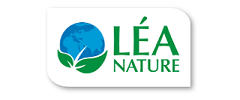Ecosan in the Ukraine - latest news
First separate double vault compost toilets are ceremoniously opened
08.11.2004 |Margriet Samwel

On Saturday 30 October 2004, the newly constructed toilet-building for the School of Gozhuli were opened with a ceremony. Authorities, representatives and students of the university Poltava, mass media, teachers, parents, school children and the project partners were all very positively surprised about the very nice looking toilets and high quality of the construction.
These ecological toilets were implemented in the scope of the MATRA project “Cooperation for Sustainable Rural Development”. This project, financed by the Ministry of Foreign Affairs of the Netherlands MATRA programme, started in November 2003 and will finish in November 2006. The project is implemented by the local NGO partner Mama-86 in close cooperation with WECF.
More
Why a new ecological school toilet building in Gozhuli?
Background
In the project village Gozhuli in Poltava oblast, WECF and Mama-86 teams were confronted with severe environmental problems.
Gozhuli has 3600 inhabitants. The village is partly connected to a sewage and central drinking water system. Most inhabitants, over 800 households, rely on drinking water from mainly 448 unprotected private wells.
- The majority of citizens of Gozhuli receive bad quality drinking water from the central water system. The central water system delivers water from 200 m depth with much too high fluorine and salt concentrations. In addition leaking pipes contaminate this water.
- The other 800 households rely on private wells, which are polluted with nitrate (100 – 250 mg/l) and micro organisms.
- Latrines in the yard are common, especially for households which are not connected to central drinking water system. Because of the difficult economic situation latrines are mostly not emptied and excrements leach into the soil and groundwater. Septic tanks are overloaded and also contribute to soil and groundwater contamination.
- The desolated conditions of the sewage system is a severe problem. Pipes are leaking, the pumps of the pump station are functioning badly and the treatment plant is totally neglected, mainly caused by lack of financial resources.
- All these facts contribute to severe water pollution. Other wastewater management approaches are needed under the given circumstanced.
School toilets
The school of Gozhuli has 160 children from grade 1-9 and 15 teachers. For the kindergarten a flush toilet was installed, but the older children had to use two pit latrines outside the school in the garden. These pit latrines did not meet the sanitation standards at all. Latrines outside in the schoolyard are common in the rural areas of e.g. Eastern Europe and NIS. Especially during wintertime going to the latrine in the cold has a negative impact on the health of the children. In addition the toilets were in bad condition and smelled badly.
As an example for other schools in Ukraine and elsewhere in the NIS, 4 separate double vault compost toilets (no mix toilets) and 3 urinals were designed by Dipl.-Ing. Stefan Deegener (Prof. R. Otterpohl) of the University Hamburg-Harburg and constructed by a local company. The toilet building is connected to the school so that the children no longer need to go outside.
The toilets are examples for:
- how comfortable new ecological sanitation toilets can be
- how sanitation conditions can be improved
- how to build separate compost toilets
- how soil and ground water pollution by excrements can be avoid
- how drinking water for flushing excrements can be saved
- how nutrients can be recycled
- how composted excrements can be used safe as fertilizer or as a soil conditioner
- how to manage human waste safely, when no water connection or sewage system is available
Key facts of separate double vault compost toilets:
The most important is that urine and faeces are proper separated, collected and stored. A direct natural separation is possible by using a special toilet. This can be a seat model or a squatting slab, as was preferred for the school.
Storage of urine and composting process of the faeces kill or reduce pathogenic micro-organisms.
- A pipe connected to the urine bowls, conducts urine of all the toilets/urinals to a 2-m3 reservoir, which is buried in soil
- After the urine reservoir is filled (after app. 6 month), the pipe can be moved easily to the second reservoir.
- After faeces disposal in the chamber with content of 0.85 m3, faeces are directly covered with fine wood ships or a mixture of soil and ashes. A ventilation pipe brings fresh air into the chambers
- After storage of the urine during 6 month, the urine can be used as a fertilizer.
- After one compost chamber is filled (after app. 1 year), the squatting slabs are moved to the second chamber; during this time the feaces in the first chamber are in rest and through compostation turned into dry humus (soil).
- After the second chamber is filled, the first chamber is emptied and the slab is moved back. If needed the composting process can be continued together with other organic materials in a heap
- After a composting time of 2 years of the faeces – now turned into compost/humus - the compost/humus can be used as a soil improver or fertilizer.
Education, surveys and investigation
For the children, teachers and the caretaker, 2 workshops were organized and education materials were applied on the use and maintenance of the eco-sanitation toilets.
Also the WECF-publication “Ecological Sanitation and Associated Hygienic Risks” was translated to Ukraine language.
Surveys and investigation on operating and acceptance of the toilets will be carried out. Hygienic aspects will be taken in considering as well. Activities will be developed in cooperation with Mama-86, University of Poltava and Hamburg-Harburg.
Ecological Sanitation Information Websites:
www.ecosanres.org
www.sida.se
www.siwi.org
www.gtz.de/ecosan
www.otterwasser.de
www.tu-harburg.de/aww/english/index.htm
www.sanicon.net/themes
www.worldwatercouncil.org
www.ecowaters

































